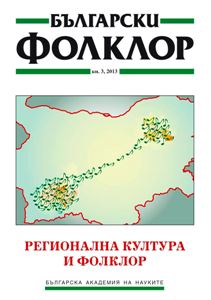Регионалното теренно проучване на музикалния фолклор: методология и изследователски резултати
The Regional Field Study of the Musical Folklore: Methodology and Research Results
Author(s): Natalia RashkovaSubject(s): Customs / Folklore
Published by: Институт за етнология и фолклористика с Етнографски музей при БАН
Keywords: fieldwork; regional study; ethnomusicology; methodology] musical folklore
Summary/Abstract: During different periods in the development of ethnomusicology the term “fieldwork” has been changed following the respective scientific paradigms or arising from them. The author retrospectively follows through the change in approaching fieldwork and illustrates a considerable transition from focusing on accumulation of separate samples, product of sound activity, towards the interpretation of information about music in cultural context. The variety of fieldwork techniques and methodological tools allows for revealing territorial relatedness and interdependence of musical elements and performance styles, for highlighting local specificities in the functioning of folk music, for distinguishing acts of local cultural inheritance in the living musical practice. The spatial parameters of music cultures are at the core of areal studies in ethnomusicology. The observation on the music, placed within the social, economic and political frames of the geographical regions, is one possible approach developed in the so called music geography. The extraction of maximum information becomes more significant in working in the field – not only recording the local music repertoire, but in addition gaining knowledge on the music life in the local culture. Moving in individual trajectory in terms of empirical knowledge, each researcher realizes the efficiency of the different approaches. In reflexive notes the author presents her work style in regional studies of the musical folklore. In postmodernity the regional research seems to be less directed to the past. The understanding about the locality and spatial boundaries changes, while ethnomusicology faces new methodological challenges to register and delineate regional parameters in the music culture.
Journal: Български фолклор
- Issue Year: XXXIX/2013
- Issue No: 3
- Page Range: 288-299
- Page Count: 12
- Language: Bulgarian
- Content File-PDF

